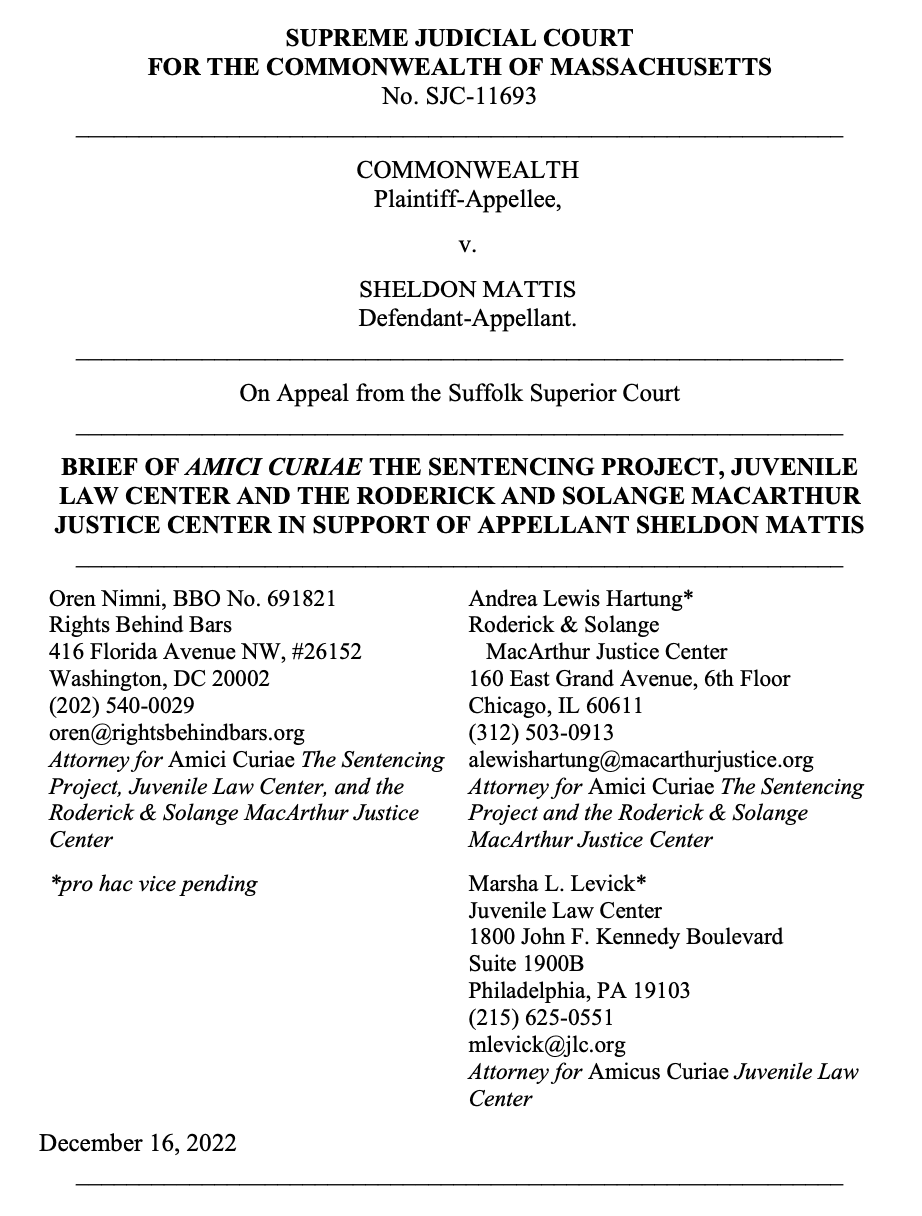
Summary of Argument
This Court asks whether article 26 of the Massachusetts Declaration of Rights categorically bars mandatory life-without-parole sentences for individuals age 18 to 20 convicted of first-degree murder. The narrow answer is yes, but amici posit that this Court should hold that life-without-parole sentences for all late adolescents—including those over age 20—are unconstitutional, and extend its ruling in Diatchenko v. Dist. Att’y, 466 Mass. 655 (2013) (Diatchenko I), accordingly.
(pp. 7-15) First, this Court’s decision in Diatchenko I, consistent with other rulings addressing article 26, extended the reach of rights previously recognized under the Eighth Amendment rights. But here, where the U.S. Supreme Court drew a clear line at age 18 for sentencing protections based on outdated notions of the age of maturity, this Court must consider article 26 independently from the Eighth Amendment. In doing so, this Court should decisively rule that article 26 is substantively broader than the Eighth Amendment. Article 26, unlike the Eighth Amendment, requires sentences that are proportional to both the offense and the person facing punishment. Additionally, article 26’s prohibition against cruel “or” unusual punishment is textually broader than the Eighth Amendment’s prohibition against cruel “and” unusual punishment. Accordingly, all sentences should be reviewed for proportionality considering society’s evolving standards of decency.
(pp. 15-31) Second, objective measures of society’s standards of decency show that life-without-parole sentences are disproportionate for youth over 18 for the same reasons they are disproportionate for youth under 18. Scientific research shows that the developmental characteristics of youth that render them less blameworthy, which this Court relied upon in barring life without parole for juveniles, extend to older adolescents well beyond age 18. A clear national consensus also is emerging—based on this research—that the line between childhood and adulthood falls well above the age of 18.
(pp. 31-33) Third, states with similar prohibitions on disproportionate punishment are beginning to address the scientific reality that life sentences for late adolescents are unconstitutionally cruel or unusual punishment. Because the justifications for life-without-parole sentences for older adolescents fail in the same way they fail for youth under 18, and neither science nor society considers 18 to be the age at which a child achieves full maturity, this Court should broaden its ruling in Diatchenko I to hold that article 26 bars life-without-parole sentences for youth over 18.